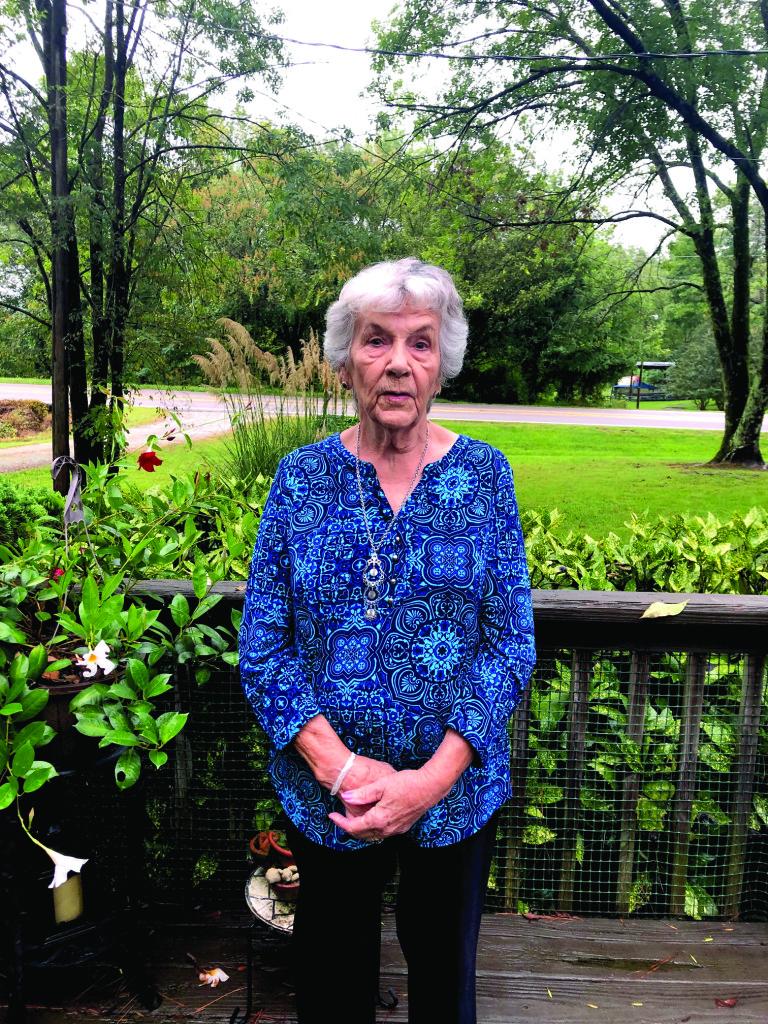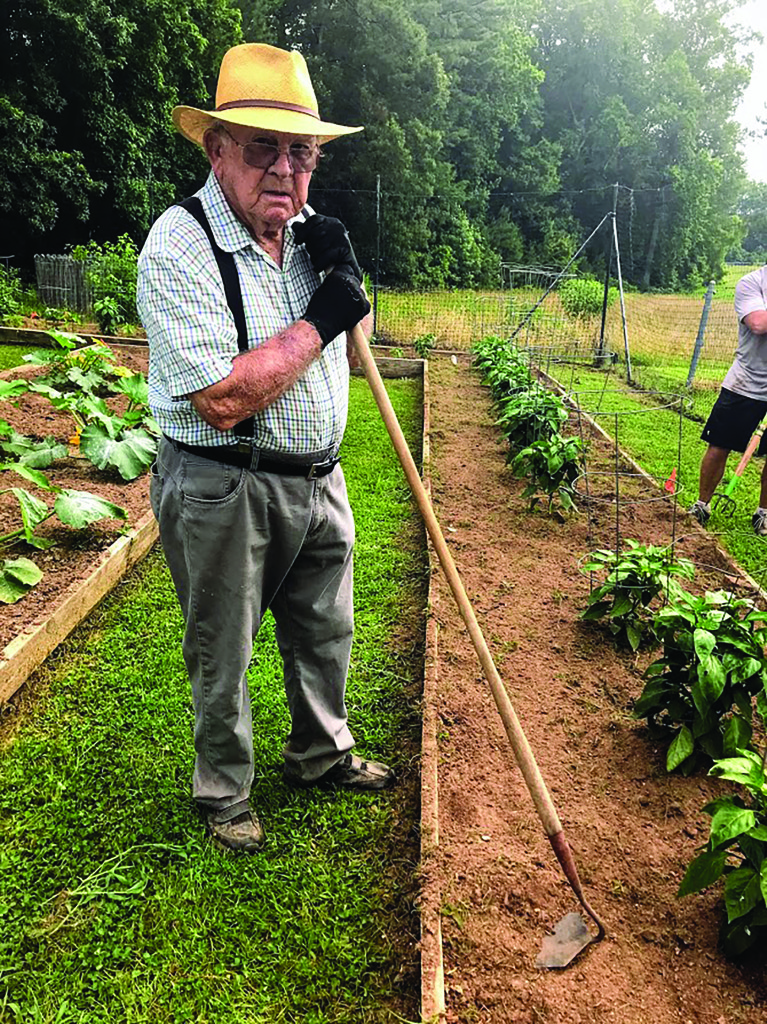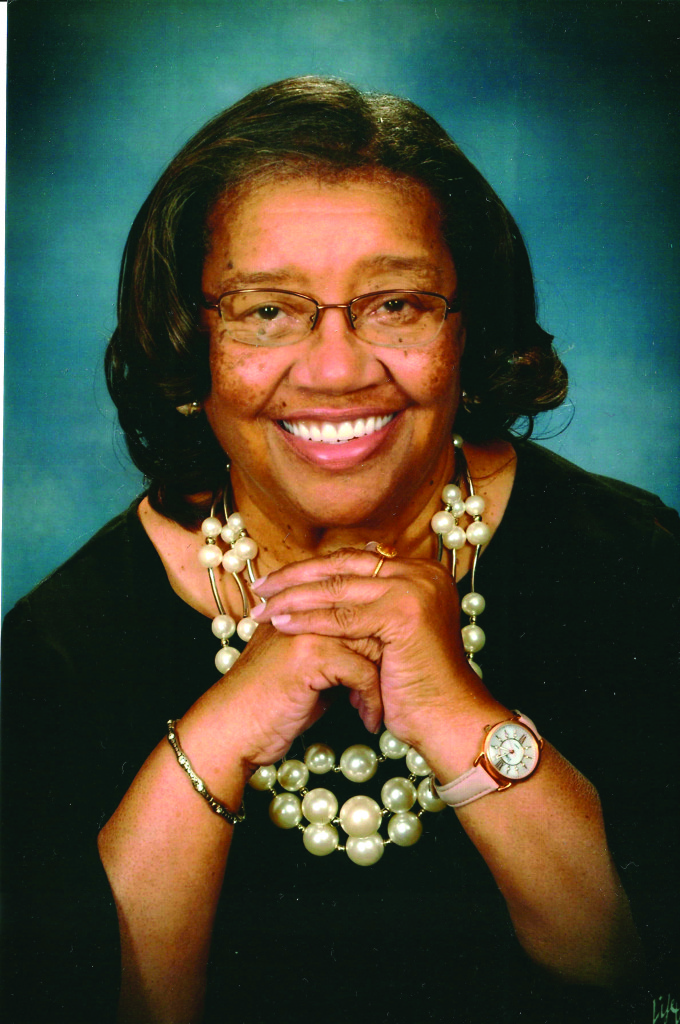Recently, Fuquay-Varina’s Capturing Wisdoms Writing Group interviewed three long-term residents. They told about looping tobacco, raising children, farming, and teaching. Wisdom woven throughout their stories reveals common threads of hard work and tenacity to help us understand the fibers that make our community strong.

Interview of Betty Lawrence by Nancy King
Betty Lawrence is a North Carolina native, with roots deep in our rich Southern soil. Her father, mother, and the generations before them lived, worked, and are buried in these lands. Betty does not know where the family came from originally. “They’ve just always kind of been in North Carolina, I guess.” Betty says her forefathers were “big tobacco farmers, and hogs, Granddaddy had hogs.” Betty’s dad, Jamie Yates Jones, grew tobacco. The family worked in the fields picking and looping with strings, to stay on sticks for hanging and sheeting up for drying, to prepare the harvest for market.
Mr. Jones and his wife, Alma Woolard Jones, raised ten children on their farm east of Fuquay-Varina off of what is now Highway 42. Betty, now 86 years old, lives on the land today, as do three of her daughters.
Betty suffered great loss with the death of her husband in middle-age, and later, of her only son in a work-related accident. She is reflective, strengthened by their memories. For Betty, life is full. “Mama,” as she is known to her kin, is a strong woman with a huge heart. She raised her siblings and her children to be productive and loving members of her ever-growing family, and she continues to mentor and guide them today. “They come to me for advice because they know I will always be here for them. I help them find answers. We have respect for each other and confidence in that support, even if we tease or pick at one another sometimes.”
She still finds time to help others less fortunate through church, visiting the sick, and cooking or helping those in need. Betty has built a lasting legacy and projects a sense of humility, joy in life, and perseverance. Looking back, she says she wouldn’t change a thing. “Nothing. I wouldn’t change nothing,” she says with the grace that comes with a life well-lived.
Betty, the third child. was called upon to care for her seven younger siblings at home while her older sisters worked in the fields. During these years Betty began to prepare herself for her future as a mother, caregiver, and eventual family matriarch.
It was not until 1972 or so, Betty recalls, that farming tobacco became automated in the Jones family. By then Betty had long been married and was raising a family of her own. Two decades earlier she had fallen in love and in 1951, at the tender age of sixteen, married “Junior” Lawrence from Willow Spring. Then came three daughters and a son. Betty didn’t hesitate to embrace her new role. She had, after all, already “raised” seven children. Her sisterly duties of preparing meals, doing laundry, and settling little disputes were second nature to her as a mother.
“As a family growing up, we were very close. We had to be, had to sleep double or maybe three to a bed,” Betty said laughing.
“My goal was to be a nurse, and I guess I kind of might be, but I don’t get paid! I just enjoy what I do.”
Betty adapted to changes around her. If the kids needed clothes, she would sew them; if they needed food, she would cook it; if they needed a hug, she had that, too.
Betty hopes she has taught her family to have faith—faith in themselves, one another, and their creator. She is thankful for all that she has and all that she has nurtured. The role of the matriarch is
well-earned and well-deserved, and Betty’s guidance and leadership endure. “It’s what I do.”

Interview of Bobby Stephenson by Valerie Macon
Bobby is an 86-year-old retired farmer and farm supply store manager. He has been on the farm since he was born. He recalls that at age four, he followed his daddy around asking if he could help milk the cows. Growing up in a time where there were no grocery stores, general stores carried everything. All of the family’s sustenance was grown and made on the farm. Bobby sees farming as a good life. He says, “You are your own boss; if you want to go fishing, then quit working and go fishing.”
At age seven, he began milking the cow twice a day and did not quit this chore until the day he got married in 1954, right after high school. He and his new wife, Zelma, moved into a house on the farm that he leased and started growing tobacco.
When he started growing tobacco, he plowed with a mule. In the curing barn, he would tie the tobacco in bundles onto tobacco sticks on a looping horse. A stick of tobacco weighed 15-20 pounds and there were 200 pounds per basket. His daddy also used a machine that rolled cigarettes.
He took the tobacco to be auctioned at the warehouses in Varina and in Fuquay. Both auction houses eventually burned down, and later, an auction warehouse was rebuilt at Five Points. At that time, there were allotments on tobacco, and he was being undercut; so, he got out of tobacco farming in 1956 and went to work at a service station making $50 a week greasing, pumping gas, and changing oil.
He got back into farming in 1958 growing vegetables and tobacco. In 1959, he bought his tractor, a Farmall 140, which did the work of two mules plowing.
Bobby really got into farming in the 1960s when he rented a farm. He started with twenty acres of tobacco, soybeans, corn, and wheat, which expanded into eighty acres of tobacco and fifty acres of soybeans. When harvest time came, he worked twenty people from July to September. He taught them to run the farm equipment and to loop tobacco.
He started buying bigger tractors and bought five of them. He bought a tobacco looper. Then, he purchased a combine for $17,000, which he ran into a pecan tree, straightened it out, and traded in for a two-row harvester.
Farming had been slowly going out, and in 1980, Bobby finally left farming and sold all his equipment.
After 1980, he went to work with his brother-in-law in his farm supply store, Powell & Powell Supply. This was one of the biggest farm supply stores in Wake County. Soon, he was asked to run the store in the Sanford location. Besides farm supplies and seed, they made their own fertilizer, bagged it, and ran trucks to go out and spread it. They had one truck in Sanford and two in Fuquay with tanks on the trucks to spray.
The basic things people learn about farming they learn from a mentor; they grow up with it. Going to college to learn farming makes you just a little smarter. He recalls one time that he told his two sons to clean out the packhouse. They cleaned out the poison and dumped it in the pond. He lost twenty-five calves, all but fifteen cows, and a bull. He had to get a backhoe to bury the cows. The mistake cost him $10,000.
“Things that you must know to be a successful farmer are your market, equipment, and financing—unless you inherit a farm. A majority of farmers today have to borrow money to farm.” The last year he was in farming, he borrowed $50,000. “There are a few in this area who still tend tobacco and soybeans. There isn’t much hay or corn to feed the livestock in this area because there’s no money in growing corn; the yield is low, seventy-five bushels per acre.”
Bobby always had hogs and cows on his farm, and he passed on his knowledge and skills of hog farming to his son, Ronnie, teaching him how to start a pig farm. In addition, at age 80, he helped start The Garden of Eaten, a garden that grows food to donate to the homeless and others who need food. He is the Garden Manager at the Garden of Eaten, and all who work in the Garden are mentored by him in the wisdoms of farming, along with a big helping of farm stories.

Interview of Mamie Richardson
by David Kirk Dirlam
Mamie is a life-long learner and an active member of the Fuquay-Varina community. She earned a living as a bookkeeper for Fidelity Bank, starting in 1972, but her real love was teaching. She returned to college in 1992 to finish a degree she started many years before and eventually had the chance to work with children, most of whom were considered behaviorally and emotionally disturbed (BED children).
“I tried to treat the children the way I wanted to be treated, with love and respect. When you love them, and many children did not get that at home, they learn to respect you.”
Looking back, Mamie recalls, “My first day at Lincoln Heights my thoughts were, What have I gotten myself into? The students were bouncing and jumping all over the place and the teacher would say, ‘Would you make a better choice please?’ I thought, What choice do they need other than to do what I tell them to do? I told the pupils, ‘You don’t have but 25 minutes to eat. You don’t have time to do anything but eat. If you’re hungry, get your food and sit down and eat. It’s not like home.’”
“Every generation is different. My mother didn’t have money to give, but she would feed people. My father was a sharecropper and president of the PTA when I was in high school. If we had to plant tobacco, we had to get out of school at noon, and he would come to pick us up. When I was in the ninth grade, I told one new teacher, ‘I can’t run around the track because I have asthma.’ When my dad heard this, he told her, ‘She runs around the house all the time.’ In my house, you couldn’t tell a lie and get away with it.”
During Mamie’s high school days, “Many employers were beginning to hire African-Americans who had graduated high school and were willing to work and be trained. In this generation, some are not willing to go to school and get trained for a position. When I went to Fidelity, I had qualifications. You have to carry yourself well. You don’t need to discriminate the color of a person, but you can discriminate how they carry themselves. When I went to work, I looked like I was going to Sunday morning worship. Some today, come to church like they are going to a Saturday afternoon picnic.”
“My sister died of a massive heart attack and I told my children, ‘Life is not promised to you. Learn to cook, clean, and get an education.’ Today’s children are in the I-Want generation. Opportunities are great. I told my son, ‘If you get stopped with drugs in my car, I’m coming to get my car and I’ll leave you in jail.’”
“The future? I would like to see traffic improve, a movie theater, more restaurants… I would like to see fewer dropouts. Go to school; get something in your head; you don’t have to stay here, you have more opportunities. You are never too old to learn. You should know if you make a friend, you have a friend.”
She added, “I go to New Providence Missionary Baptist Church. My pastor is Rev. Dr. Nathanial Wood. I have two adult children. James graduated from Shaw University and married Leona, a graduate of East Carolina University. Her daughter Candace graduated from Saint Augustine’s University and lives in Charlotte. Both Leona and Candace are teachers.”
Our three long-term residents are proud of their service to others. We owe them much for providing the foundation for us to build upon as we continue to thrive in Fuquay-Varina.